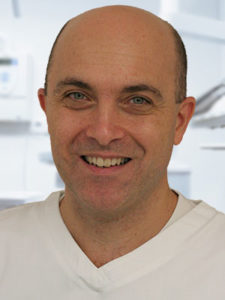Looking for decay prevention? Call Preventive Dental today on
020 8874 3877
What is tooth decay?
Dental decay happens when the enamel and dentine of a tooth become softened by acid attack after you have eaten or drunk anything containing sugars. Over time, the acid makes a cavity (hole) in the tooth. ‘Dental decay’ is the same as tooth decay and is also known as ‘dental caries’.
For decay prevention you can see:
Morris Weinstein, Giuseppe Di Filippo, Elizabeth Basset
What causes dental decay?
Tooth decay damages your teeth and leads to fillings or even extractions. Decay happens when sugar reacts with the bacteria in plaque. This forms the acids that attack the teeth and destroy the enamel. After this happens many times, the tooth enamel may break down, forming a hole or ‘cavity’ into the dentine. The tooth can then decay more quickly.
What are the signs of dental decay?
In the early stages of dental decay, there are no symptoms, but your dental team may be able to spot a cavity in its early stages when they examine or x-ray your teeth. This is why you should visit your dental team regularly, as small cavities are much easier to treat than advanced decay.
What happens if I have a cavity?
Once the cavity has reached the dentine your tooth may become sensitive, particularly when you have sweet foods and drinks, and acidic or hot foods.
As the decay gets near the dental pulp you may suffer from toothache.
If the toothache is brought on by hot or sweet foods this may last for only a few seconds. As the decay gets closer to the dental pulp the pain may last longer and you may need to take painkillers – paracetamol or ibuprofen – to control the pain. You must visit your dental team straight away as the tooth is dying, and you may develop a dental abscess if it is not treated.
What treatment will I need?
If the decay is not too serious, the dental team will remove all the decay and repair the tooth with a filling. Sometimes the nerve in the middle of the tooth can be damaged. If so, the dentist will need to carry out root canal treatment by removing the nerve and then repairing the tooth with a filling or a crown. If the tooth is so badly decayed that it cannot be repaired, the dentist may have to take the tooth out.
Is there anything I can do to protect my teeth against decay?
As the adult molars (back teeth) appear, and if the teeth are free from decay, a “pit and fissure sealant” can be used to protect them. The sealant is a plastic coating that fills all the little crevices in the tooth surface, creating a flat surface that is easier to clean.
Adults can also have this treatment if the teeth are free from decay. Your dental team will discuss whether this is right for you. Children can also have fluoride varnishes painted onto their teeth twice a year which will help to reduce the chances of decay.
What can I do to prevent decay?
 The best way to prevent dental decay is by brushing your teeth thoroughly last thing at night and at least one other time during the day, with fluoride toothpaste. Make sure that you brush the inner, outer and biting surfaces of your teeth. Using “interdental” brushes, or dental floss or tape, also helps to remove plaque and food from between your teeth and where they meet the gums. These are areas an ordinary toothbrush can’t reach.
The best way to prevent dental decay is by brushing your teeth thoroughly last thing at night and at least one other time during the day, with fluoride toothpaste. Make sure that you brush the inner, outer and biting surfaces of your teeth. Using “interdental” brushes, or dental floss or tape, also helps to remove plaque and food from between your teeth and where they meet the gums. These are areas an ordinary toothbrush can’t reach.
Is there anything else I can do?
 Visit your dental team regularly, as often as they recommend. Have sugary and acidic food and drinks less often. Avoid having snacks between meals, to limit the number of times your teeth are under attack from acids.
Visit your dental team regularly, as often as they recommend. Have sugary and acidic food and drinks less often. Avoid having snacks between meals, to limit the number of times your teeth are under attack from acids.
Courtesy of the British Dental Health Foundation – www.dentalhealth.org




